Archive
01 July 2021
Strategy for the Netherlands Polar Programme
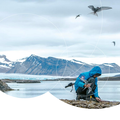
The aim of the Netherlands Polar Programme (NPP) is to stimulate and support the development and execution of high-quality research in the Arctic and Antarctic. It is a special programme operated by the Dutch Research Council (NWO), financed and commissioned by the Dutch government. The Netherlands has been committed to scientific polar research since it obtained Consultative Party status in the Antarctic Treaty in 1990, and Observer status in the Arctic Council in 1998. This Pole Position-NL 3.0 describes the third integrated polar research strategy (2021–2025). It is complementary to the Netherlands’ Polar Strategy 2021—2025, titled Prepared for Change, published by the government of the Netherlands. The research strategy was developed with the aid of a strategy committee under the auspices of the NPP Programme Committee
22 June 2021
Sea level rise outpaced by vertical dune toe translation on prograding coasts
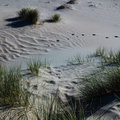
Karin Sluis, Senior Advisor and former Director of Witteveen+Bos, has been chosen as TU Delft Alumnus of the Year 2021.
17 June 2021
Sand on the horizon

It’s a decade since the creation of the Sand Motor, an artificial sand bank off the North Sea coast. What happens to a natural system following human intervention on such a large scale? That question has been the focus of professor of Coastal Engineering Stefan Aarninkhof’s research for the last ten years. The results, he hopes, will pave the way to a full-scale experimental climate lab.
10 May 2021
25 partners from the construction industry sign Manifesto

More than 25 parties from the construction world, including 4TU.Bouw, are joining forces for an innovative approach to replacement and renovation.
10 May 2021
Miljarden euro’s schade, wellicht 2600 doden en volle vluchtroutes: dit kan gebeuren als Lekdijk doorbreekt
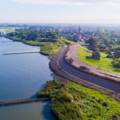
We leven in een land met veel water en staan er zelden bij stil dat onze dijken het zouden kunnen begeven. Toch is die kans bepaald niet denkbeeldig, bleek onlangs uit een alarmerend rapport van hoogleraar Stefan van Baars. Bij hoogwater zou de Lekdijk tussen Kinderdijk en Groot-Ammers volgens hem zomaar eens kunnen breken, met dramatische gevolgen tot en met Gorinchem aan toe.
29 April 2021
1,000 rivers emit nearly 80% of global ocean plastic pollution
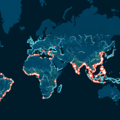
A publication in Science Advances sheds new light on where and how much plastic flows into the oceans via rivers.
29 April 2021
Astrid Blom will be the new head of the section River, Ports, Waterways and Dredging Engineering (RPWDE)

15 April 2021
New staff member in the Ports and Waterways section
We welcome dr. Alex Kirichek as a new assistant professor to the section of Ports & Waterways.
08 April 2021
Grimburgwal provides lessons for quay wall renovations Amsterdam
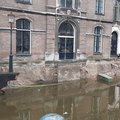
On September 1, 2020, part of the quay of the Grimburgwal in Amsterdam collapsed. The primary causes appear to be the different construction of the narrow quay, the locally deeper canal bed, and the weakening of masonry due to collisions. This is the result of the research conducted by a research team composed of experts from TU Delft, Deltares, AMS Institute, and SkyGEO, led by Mandy Korff (TU Delft/Deltares), on behalf of the City of Amsterdam. The full report with conclusions and recommendations for other quay walls in the city was published by the City of Amsterdam on April 8, 2021.
08 April 2021
Zandkastelen bouwen voor je afstuderen
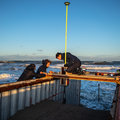
Jasper Scheijmans, master student Civil Engineering, wilde eigenlijk bij een grote baggeraar afstuderen, maar Covid-19 gooide roet in het eten. Samen met zijn docenten bedacht hij een heel nieuw idee: containers inzetten voor duinonderzoek.